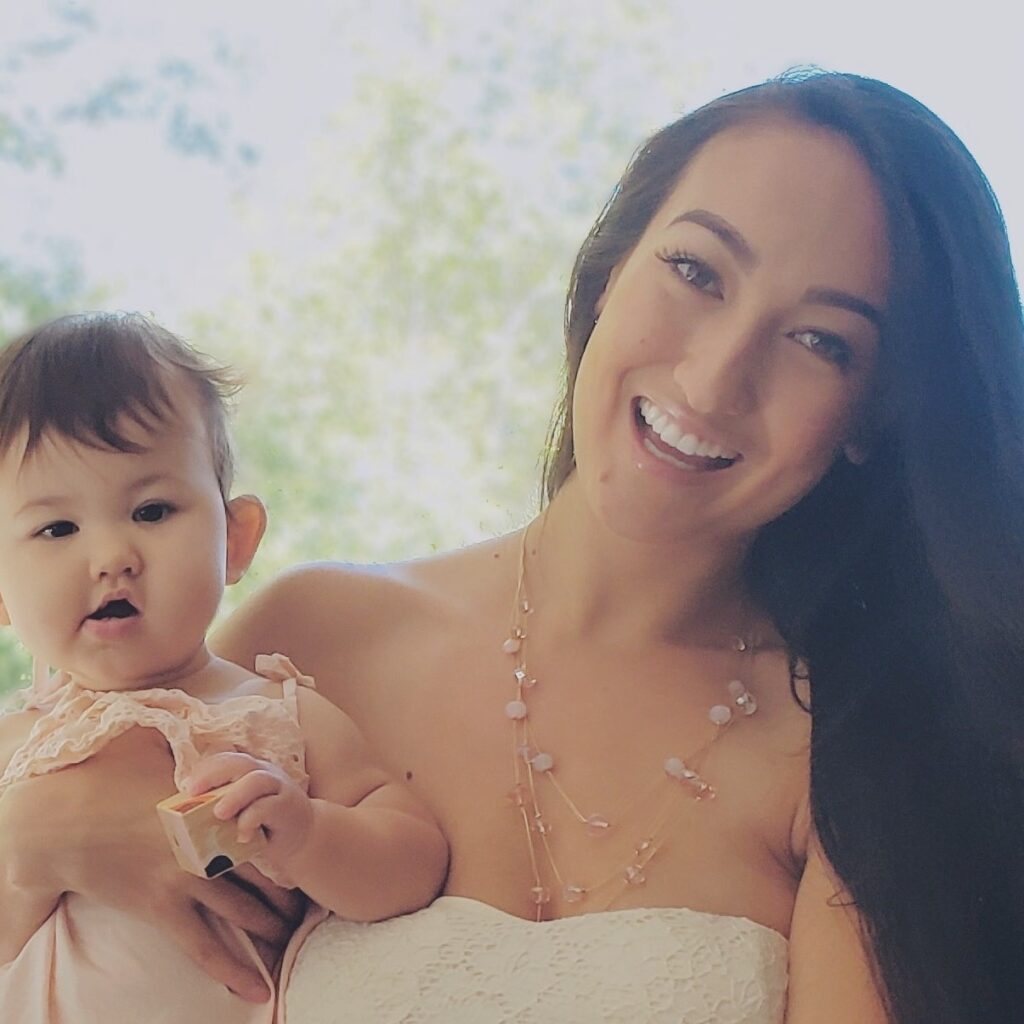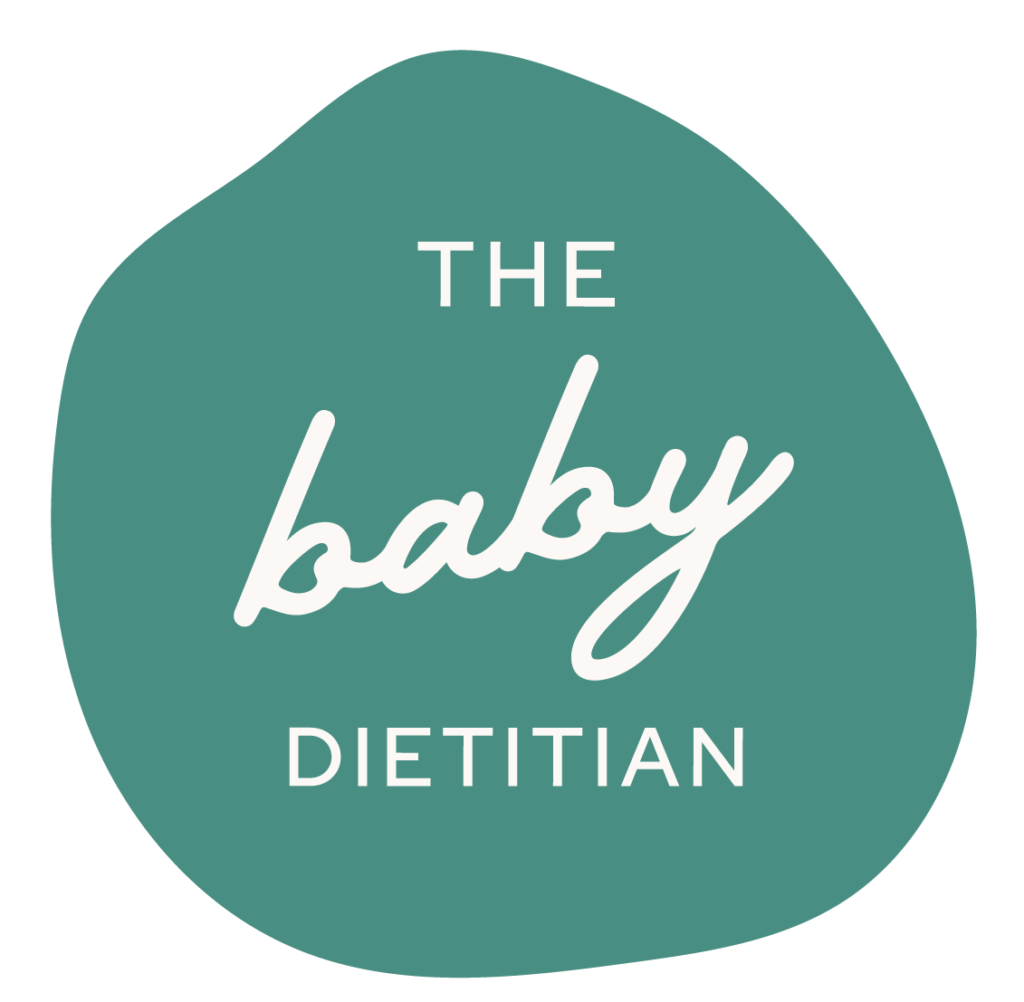


Sleep and Nutrition Myth Busters
Here are the most common sleep and nutrition questions we get asked as a sleep consultant and as a pediatric dietitian and international board certified lactation consultant. While we always could do with more research and science behind the sleep and nutrition in infancy sphere, these are the most evidence-based answers we can provide at this time.
When your child sleeps through the night is completely individualized to your child and usually is not related to nutritional intake, but in some cases, it may be. Some babies may drop night feeds by a certain age but their nutritional needs will fluctuate, and there may be times when
they need to add in a night feed again for a period of time. It’s best to follow your baby’s lead on this.
Night waking is considered biologically normal in the first year of life and is actually considered a protective effect against SIDS. Many children will continue to awake the first year of life and beyond and this may not signify any concern. Most research shows no correlation between solid food intake and increased sleep.
The weight of your child alone is not a determinant of no longer needing night feeds. There is no data to support that. A child could be born close to 12 pounds and that would not mean that your newborn would not need night feeds.
Arousal and sleep are complex neurophysiologic processes regulated by circadian rhythms and sleep wake homeostasis which appear by 10-12 weeks. Though a universal physiologic process, differences in sleep patterns are influenced by culture, race/ethnicity, child temperament and development, parenting practices, and maternal depression, but not by diet (Beal 1969).
“It’s important for parents, caregivers, families, and friends to understand that at this age, a good sleeper is a child who wakes up frequently but can get himself back to sleep. It is not a child who sleeps without waking for 10 hours at night. Frequent waking is developmentally appropriate and allows the baby to wake up when he is in a situation in which he is not getting enough oxygen or is having problems breathing. Sleeping undisturbed for prolonged periods at this age is not healthy.” – American Academy of Pediatrics
If your child naturally is sleeping through the night early on and is gaining weight appropriately they may need to awake for night feeds, this will depend on the individual child and just reiterates that the sleeping through the night milestone will vary from child
to child.

Myth or Fact #1: Once your baby hits a certain weight (example: 12 lbs in 12 weeks) you do not need to feed them overnight.
Myth!
Answer:
- Infants have small stomachs requiring frequent feeds and night feedings are key in ensuring adequate nutritional intake and protecting mother’s milk supply. There is zero scientific data to support this claim.
Explanation:
- This is very specific to each child’s unique needs. That statement is like saying a 130 pound female won’t wake up thirsty at night. We need to remember that night feeds are not just hunger related, they could be waking for protective reasons and comfort.
- Night nursing is:
- an important source of nutrition for young children
- breast milk has higher levels of melatonin at night to promote rest for mom and baby
- nighttime nursing aids in lactation amenorrhea
- frequent infant arousals aid in reducing the risk of SIDS
- High levels of prolactin at night = more milk produced
Research:
- The age when the first night feeding was eliminated in a series of 95 infants was unrelated to the type of milk, age at acceptance of solid foods, caloric intake, birth weight, weight increment, or position in the family. The achievement of an 8 hour interval between night feedings seems to be a developmental stage which is most likely to be reached early in the second month of life, but may vary from the newborn period to the age of 15 months (Beal 1969).
- Frequent waking is developmentally appropriate and allows the baby to wake up when he is in a situation in which he is not getting enough oxygen or is having problems breathing.

Myth or Fact #2: Eating solids helps babies sleep at night
Mostly Myth!
Answer:
- Research shows no statistical difference in the wake patterns of those who were offered solid foods earlier to encourage greater sleep intervals. Early introduction of solids can negatively impact sleep quality due to digestion issues and food sensitivities. One study showed that feeding more calories throughout the day avoided the need for night feeds but did not prevent the child from waking throughout the night.
Explanation:
- Good nutrition is encouraged for optimal sleep but early introduction of solids before six months has not been shown as an effective way to improve sleep. If your child is not consuming what they need nutritionally during the day then they most likely will wake up more at night due to hunger and require a night feed. This doesn’t just apply to solids, it applies to milk intake as well. A child could be consuming large volumes of solids during the day but not be meeting their milk needs requiring them to wake for night feeds.
Research:
- Arousal and sleep are complex neurophysiologic processes regulated by circadian rhythms and sleep-wake homeostasis, which appear by 10-12 weeks. This determines the duration and timing of sleep making sleep more structured, decreasing day naps, and altering sleep/wake pattern to gear toward day/night pattern by 6 months. 3 Effective behavioral routines reinforce this development. Though a universal physiologic process, differences in sleep patterns are influenced by culture, race/ethnicity, child temperament and development, parenting practices, and maternal depression, but not by diet (Beal 1969).
- There was no statistically significant trend or a consistent tendency of one group to have a higher proportion of sleepers than the other. Therefore, feeding infants rice cereal in the bottle before bedtime does not appear to make much difference in their sleeping through the night (Macknin M., Medendorp S., Maier M., 1989).
- “Infants who received more milk or solid feeds during the day were less likely to feed at night but not less likely to wake” “Increasing infant calories during the day may therefore reduce the likelihood of night feeding but will not reduce the need for parents to attend to the infant in the night” (Brown A., Harries, V., 2015).
- Introduction of solid foods below 6 months of age may not help the child achieve nighttime awakening free status. Infants who are introduced to solid foods early may less likely feed at night, but not less likely to wake till their sleep pattern is established. Increasing calorie intake during the day is unlikely to reduce the night-time awakening. A recent study on 715 infants 6-12 months age revealed that about 80% were still regularly awakening at least once a night (Beal 1969).

Myth or Fact #3: Iron affects baby sleep
Fact!
Answer:
- Inadequate iron status in babies can negatively impact sleep leading to restless sleep, frequent night wakings & difficulty settling.
Explanation:
- Adequate iron intake can improve sleep quality in the case of iron-deficiency anemia. Low iron can impair the function of neurotransmitters that are important for sleep resulting in frequent wakings or restless sleep (Murat et al. 2015).
Research:
- “We found that infants with IDA showed different motor activity patterning in all sleep-waking states and several differences in sleep states organization. Sleep alterations were still apparent years after correction of anemia with iron treatment in the absence of subsequent IDA” (Peirano et al. 2010).
- “The organization of sleep depends on various mechanisms involving both neural and humoral processes, several of which are affected by iron deficiency” (Peirano et al. 2010).
- “By using actigraphic recording data we found that 6 month-old IDA infants napped longer during the day and were more restless during sleep, with increased time awake and decreased time in QS (quantified sleep) at night” (Peirano et al. 2010).

Myth or Fact #4: Formula fed babies sleep better
Myth!
Answer:
- No statistical difference in sleep patterns with formula fed babies vs breastfed babies. Night wakings are more dependent on a child’s individual temperament and unique sleep needs versus the type of milk provided.
Explanation:
- Night waking is considered biologically normal for children between 0-12 months of age independent of the way they are being fed.
Research:
- No difference in night wakings or night feeds was found between mothers who were currently breastfeeding or formula feeding” (Brown A., Harries, V., 2015).
- “Full breastfeeding for ≥3 months were positively associated with longer infant sleep duration. Infants fully breastfed were more likely to experience better sleep trajectories characterized by longer duration in their first 2 years of life. Full breastfeeding may benefit infants through healthy sleep” (Wang et al. 2023).
- “Night waking data provided 4 age-bands up to 2 years ranging from 0 to 3.4 wakes per night for infants (0–12 months), to 0–2.5 per night (1–2 year-olds)” “Because the main data analysis combined data from different countries and cultures, the reference values should be considered as global norms” (Galland et al. 2011).
Have more sleep related questions?
Follow Alicia Dyshon @aliciadyshon on social media for evidence based sleep solutions for you & your little one.
More about Alicia:

Alicia takes an attachment based, holistic approach to children’s sleep with a focus on sleep science. She is a certified Baby-Led Sleep & Wellbeing Specialist, a certified Baby Sleep Consultant & is certified through Doula Canada for breastfeeding support & knowledge.
She is a Mama to 2 very busy little girls. She struggled with her oldest daughter’s sleep from day one & quickly became consumed by the sleep industry and this obsession with teaching babies “self soothe” & be independent. Like many Moms, she thought sleep training was her only option.
She now supports families without any sleep training & encourage them to follow their instincts & do what feels right for their family. Her clients continue to nurse, snuggle, rock & support their babies to sleep however they please, all while getting more sleep. Instead of focusing on the behavior around sleep, she get to the root of why your child is actually waking overnight & meeting their needs surrounding that.
Want more? My course is a 100% evidence-based approach to starting solids in a way that encourages a healthy dietary pattern from the start.
Check out the Starting Solids 101 Course now!
Access Course Now

Cinthia Scott is a Registered Dietitian (RD) and International Board Certified Lactation Consultant (IBCLC) with over 7 years experience in the field of dietetics. Cinthia focuses on ensuring optimal nutrition in the first 1000 days of life to ensure optimal growth and development as well as set the stage for long-term health. Cindy is an author, starting solids expert, and advocate for caregivers receiving evidence based education and support surrounding breastfeeding and starting solids.
Cinthia is co-author of the 101beforeone Starting Solids Book, “101beforeone -baby-led feeding cookbook,” and is the founder and owner of The Baby Dietitian LLC which is her private practice built to provide virtual 1:1 services for caregivers surrounding infant nutrition, toddler nutrition, and breastfeeding support. Cinthia is also the creator of the Starting Solids 101 Program which provides caregivers 1:1 support from a Pediatric Dietitian on how to provide optimal nutrition from the start and create healthy eating habits that will last their whole lifetime. To work with Cinthia, you can access her services here.
Cinthia provides tons of free information for parents on her social media accounts as well.
- Instagram: @The.Baby.Dietitian
- Tiktok: @The.Baby.Dietitian

